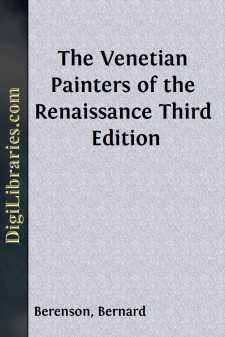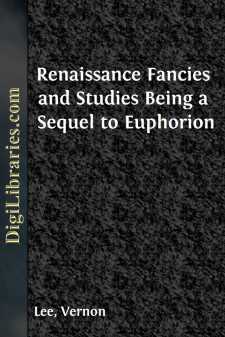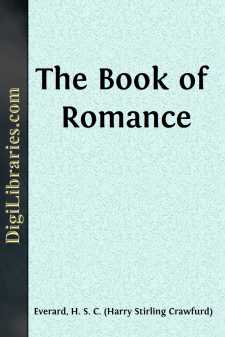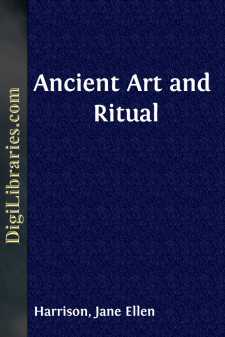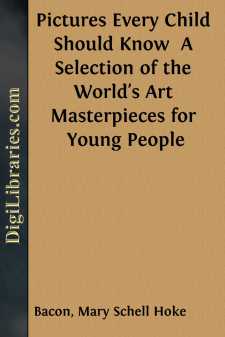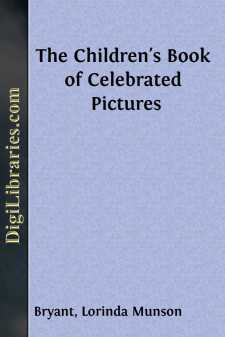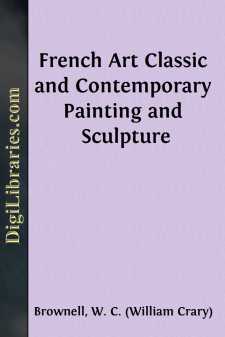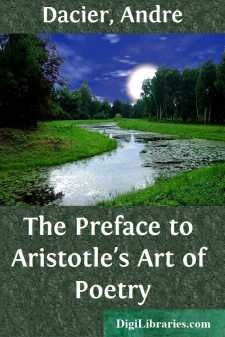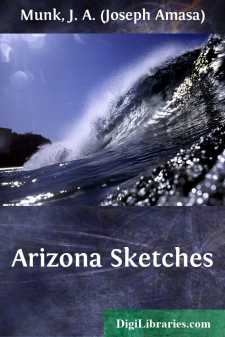Non-Classifiable
- Non-Classifiable 1768
Non-Classifiable Books
Sort by:
by:
Bernard Berenson
THE VENETIAN PAINTERS OF THE RENAISSANCE I. Value of Venetian Art.—Among the Italian schools of painting the Venetian has, for the majority of art-loving people, the strongest and most enduring attraction. In the course of the present brief account of the life of that school we shall perhaps discover some of the causes of our peculiar delight and interest in the Venetian painters, as we come to...
more...
Once upon a time, a thousand years before Columbus discovered America, and when Rome was still the greatest city in the world, there lived a brave and beautiful youth whose name was Arthur. His home was in England, near London; and he lived with the good knight Sir Hector, whom he always called father. They dwelt in a great square castle of gray stone, with a round tower at each corner. It was built...
more...
by:
Vernon Lee
"Panis Angelicus fit panis hominum. O res mirabilis, manducat Dominum Pauper, Servus et Humilis." These words of the Matins of the Most Holy Sacrament I heard for the first time many years ago, to the beautiful and inappropriate music of Cherubini. They struck me at that time as foolish, barbarous, and almost gross; but since then I have learned to think of them, and in a measure to feel of...
more...
PREFACE It is to be supposed that children do not read Prefaces; these are Bluebeard's rooms, which they are not curious to unlock. A few words may therefore be said about the Romances contained in this book. In the editor's opinion, romances are only fairy tales grown up. The whole mass of the plot and incident of romance was invented by nobody knows who, nobody knows when, nobody knows...
more...
CHAPTER I ART AND RITUAL The title of this book may strike the reader as strange and even dissonant. What have art and ritual to do together? The ritualist is, to the modern mind, a man concerned perhaps unduly with fixed forms and ceremonies, with carrying out the rigidly prescribed ordinances of a church or sect. The artist, on the other hand, we think of as free in thought and untrammelled by...
more...
INTRODUCTION Man's inclination to decorate his belongings has always been one of the earliest signs of civilisation. Art had its beginning in the lines indented in clay, perhaps, or hollowed in the wood of family utensils; after that came crude colouring and drawing. Among the first serious efforts to draw were the Egyptian square and pointed things, animals and men. The most that artists of that...
more...
Bernardino Pintoricchio (1454-1513) n looking at pictures of the old masters you will often see one called the "Holy Family." I want you to know who belonged to the Holy Family. The grown people are Joseph and Mary, the father and mother of Jesus; they had no last names at that time. The children are Jesus and his cousin, John the Baptist, six months older than Jesus. Sometimes the little...
more...
More than that of any other modern people French art is a national expression. It epitomizes very definitely the national æsthetic judgment and feeling, and if its manifestations are even more varied than are elsewhere to be met with, they share a certain character that is very salient. Of almost any French picture or statue of any modern epoch one's first thought is that it is French. The...
more...
by:
Andre Dacier
INTRODUCTION André Dacier's Poëtique d'Aristote Traduite en François avec des Remarques was published in Paris in 1692. His translation of Horace with critical remarks (1681-1689) had helped to establish his reputation in both France and England. Dryden, for example, borrowed from it extensively in his Discourse Concerning the Original and Progress of Satire (1693). No doubt this earlier...
more...
CHAPTER I A stranger on first entering Arizona is impressed with the newness and wildness that surrounds him. Indeed, the change is so great that it seems like going to sleep and waking up in a new world. Everything that he sees is different from the familiar objects of his home, and he is filled with wonder and amazement at the many curious things that are brought to his notice. Judging the country by...
more...


